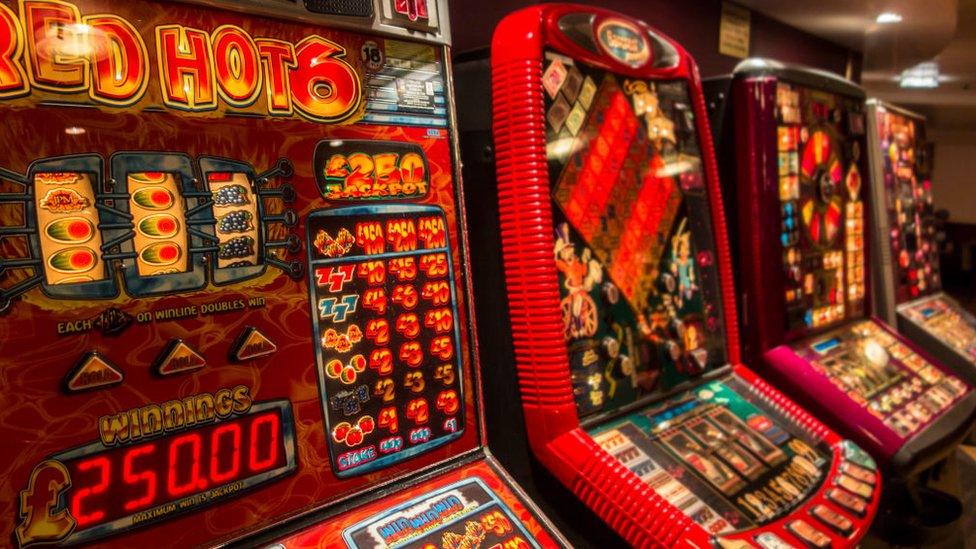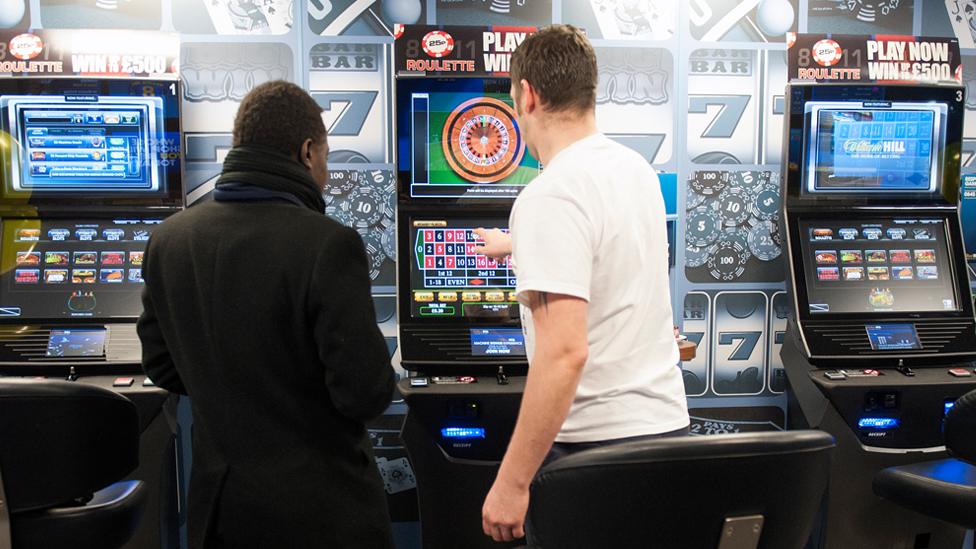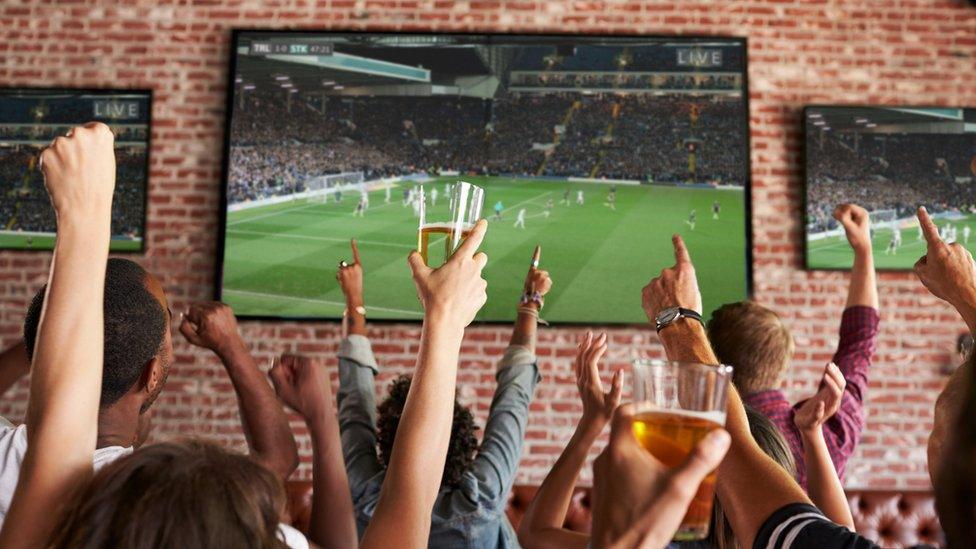Pubs fail to stop underage gambling, watchdog warns
- Published
- comments

Only 10% of pubs intervene to stop children gambling on their premises, the Gambling Commission has found.
The watchdog said it had found a "concerning" number of pubs where youngsters used gaming machines.
Pub staff are expected to prevent under-18s playing on the machines and there should be clear signage indicating the age restriction.
The British Beer and Pub Association said it took the findings "very seriously".
The Gambling Commission said it had been working with local police and licensing authorities to check pubs were acting within the law.
It said the 89% rate of failure - found across a sample of pubs - was much worse than the 15% to 30% failure rate seen in other industries selling age-restricted products, such as alcohol or tobacco.
Helen Rhodes, programme director at the Gambling Commission, said: "We are extremely concerned that pubs across England are failing to stop children playing gaming machines designed for adults.
"We urgently call on the pub sector to take action immediately to enforce the laws in place to protect children and young people."
Brigid Simmonds, chief executive of the British Beer and Pub Association (BBPA), said that pubs should offer a "safe and friendly environment for families".
"We have ensured that all of our members are aware of both the BBPA's and Gambling Commission's codes of practice and we are already taking steps to develop a social charter for responsible gambling, for use by licensees and pub companies.
"However given the importance of this issue we are seeking urgent meetings with the Gambling Commission and local authorities to ensure appropriate action is taken."
On Tuesday the government promised to bring forward a cut to the maximum bet on fixed-odds betting terminals (FOBTs) amid pressure from MPs.
It had originally planned to reduce the stake from £100 to £2 in October next year, but will now do so from April.
FOBTs have been criticised for encouraging excessive gambling and exposing people to the risk of addiction, and the social, mental and financial problems associated with gambling.
- Published10 October 2018

- Published14 November 2018

- Published30 January 2018
